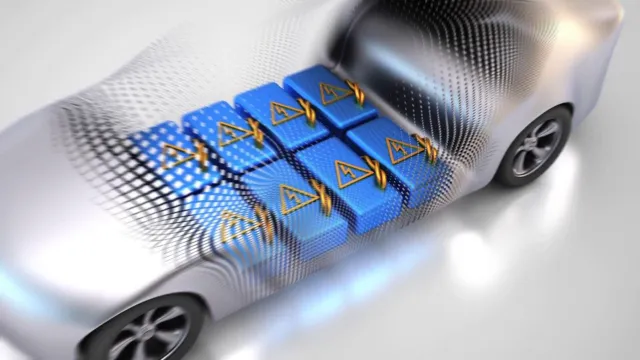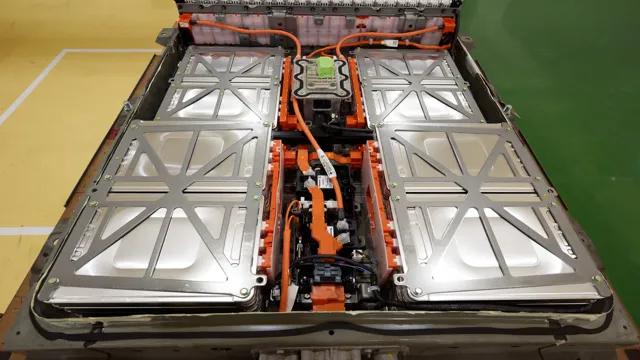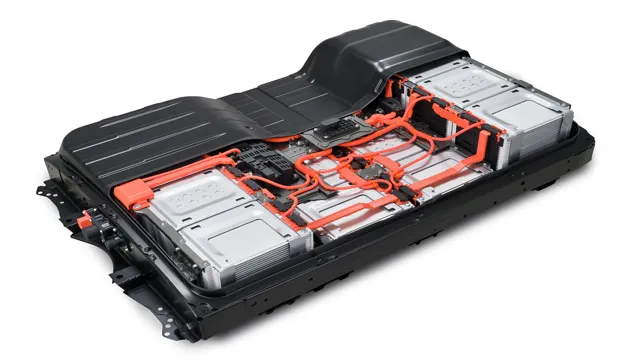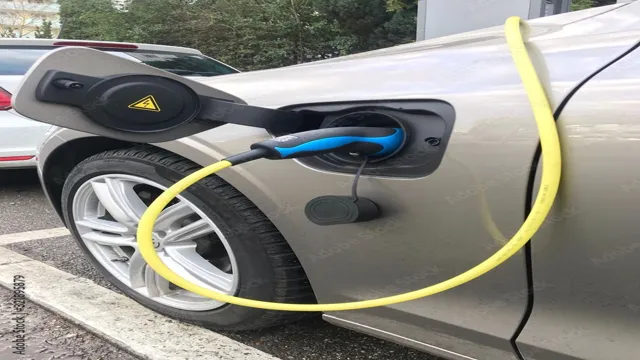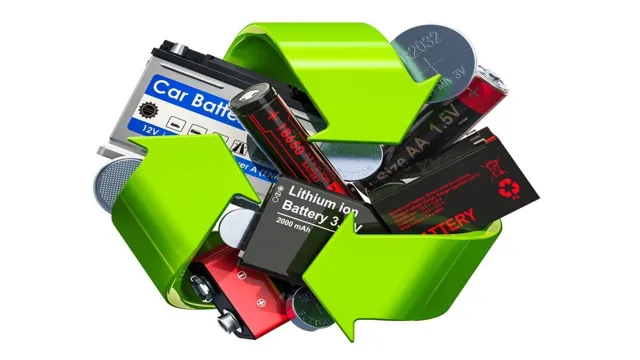Revolutionize Your Electric Car with Long-Lasting LiFePO4 Battery Technology
Are you considering buying an electric car? One crucial aspect to keep in mind is the battery that powers the vehicle. The Lifepo4 battery is an increasingly popular option for electric cars, thanks to its long lifespan, durability, and high energy density. Unlike older battery technologies, Lifepo4 batteries can last for up to a decade or more, providing electric car drivers with reliable performance over the long term.
Additionally, these batteries are highly resistant to temperature changes, which is essential for electric cars that are exposed to extreme heat and cold. The high energy density of Lifepo4 batteries also means that they can store more energy in a smaller space, making them ideal for electric cars that need a compact and lightweight battery. This feature also allows electric cars to travel further on a single charge, reducing range anxiety for drivers.
Overall, it’s easy to see why Lifepo4 batteries are becoming a go-to option for electric car manufacturers and drivers. With their long lifespan, durability, and energy density, these batteries offer a reliable and sustainable way to power our cars without compromising on performance.
What is Lifepo4?
When it comes to electric car battery technology, one term you’ve likely come across is Lifepo But what exactly does that mean? In short, Lifepo4 stands for lithium iron phosphate, which is a type of rechargeable battery made with lithium-ion technology. These batteries are known to be very safe and durable, with a long lifespan and the ability to provide stable performance over time.
When it comes to electric cars, Lifepo4 batteries are becoming increasingly popular due to their high energy density and ability to charge quickly. Plus, they are much more environmentally friendly than traditional gasoline-powered cars. So if you’re in the market for an electric car, it’s worth considering one with a Lifepo4 battery for optimal performance and sustainability.
Explanation and Comparison
Lifepo4, or lithium iron phosphate, is a type of rechargeable battery that has gained popularity in recent years due to its high energy density, long cycle life, and improved safety compared to other lithium-ion batteries. It is commonly used in small electronic devices, electric vehicles, and renewable energy systems. One of the key advantages of Lifepo4 batteries is their high energy density, meaning they can store a significant amount of energy in a relatively small size and weight.
This makes them ideal for use in portable devices where space and weight are limited. Additionally, Lifepo4 batteries have a longer cycle life compared to other lithium-ion batteries, which means they can be charged and discharged more times before they start to degrade.
Another significant advantage of Lifepo4 batteries is their improved safety.Lithium-ion batteries are known for their tendency to catch fire or explode if they are damaged or exposed to high temperatures. However, Lifepo4 batteries are much more stable and have a lower risk of thermal runaway, making them safer to use in a variety of applications. Overall, Lifepo4 batteries are a reliable and safe choice for powering a wide variety of devices and systems.
Whether you need a battery for an electric vehicle, a solar power system, or a handheld device, Lifepo4 offers a range of benefits that make it well worth considering.
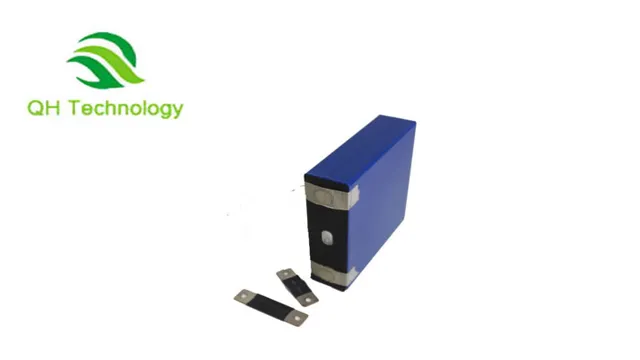
Advantages of Lifepo4
Electric car battery lifepo4 has many advantages over traditional lead-acid batteries. Firstly, they last longer and can provide more cycles, making them an excellent option for a long-term investment. Secondly, they are much smaller and lighter, which means they can be easily swapped out or replaced if needed.
Additionally, they are more efficient, as they can supply higher voltage without losing power, which results in better performance and range. This is because they have a higher energy density, which means they can store more energy in the same amount of space as a lead-acid battery. Lastly, lifepo4 batteries are safer to use, as they don’t contain any toxic materials or acid, making them environmentally friendly.
Therefore, if you are looking for an electric car battery that offers maximum performance and reliability, you should consider lifepo4 as your go-to option.
Longevity, Efficiency, and Cost
LiFePO4 batteries are gaining popularity as a reliable and efficient energy source with benefits that are unmatched by traditional lead-acid batteries. One of the biggest advantages of LiFePO4 batteries is their longevity. These batteries have an average lifespan of over 10 years, which is significantly longer than other types of batteries.
This means that they don’t need to be replaced as often, which ultimately saves time and money in the long run. Additionally, LiFePO4 batteries are highly efficient, which means that they can provide a higher energy output while consuming less power than other types of batteries. And even though LiFePO4 batteries are more expensive than their lead-acid counterparts, this cost is quickly offset by their increased efficiency and longevity.
Overall, the benefits of LiFePO4 batteries outweigh the cost, making them the ideal choice for those who want a reliable and cost-effective energy source for their devices.
Lifepo4 and Electric Cars
Electric cars are becoming more and more popular every year, and the type of battery they use is a crucial aspect of their performance. One promising development in this field is the use of Lifepo4 batteries, also known as lithium iron phosphate batteries. These batteries are highly regarded for their long life span, safety features, and ability to deliver high power output.
They are also much more environmentally friendly than traditional lead-acid batteries, which are commonly used in electric cars. Lifepo4 batteries are becoming increasingly popular for use in electric vehicles due to their lower weight, higher energy density, and improved safety. They are also less prone to thermal runaway, which is a major concern in EV batteries.
With the surge in the production of these batteries, electric car manufacturers can now offer more reliable and efficient vehicles to their customers, making electric cars more accessible to the general public. Electric car battery Lifepo4 is an exciting development in the realm of electric vehicles, and we can expect to see more advancements in this field as technology continues to improve.
How Does Lifepo4 Benefit Electric Cars?
Lifepo4 has become increasingly popular in the electric car industry due to its numerous benefits. One of the most significant advantages is its high energy density, which means it can hold more energy in a smaller package, allowing for lighter and more efficient electric cars. Furthermore, Lifepo4 batteries have a longer lifespan than traditional lead-acid batteries, making them a more cost-effective and sustainable option in the long run.
These batteries are also safer and more stable, reducing the risk of explosions or fires. The use of Lifepo4 batteries in electric cars has greatly improved their performance and reliability, making them a more viable option for eco-conscious consumers who want to reduce their carbon footprint while still enjoying the convenience of owning a car.
Examples of Electric Cars with Lifepo4
Lifepo4 and Electric Cars Lifepo4, or lithium iron phosphate, is a type of rechargeable battery that has gained popularity in various industries, including the automotive sector. It has become a preferred choice for electric cars due to its high energy density, longer lifespan, and wider operating temperature range. Many car manufacturers are incorporating this type of battery in their electric vehicles, making them more efficient, reliable, and environmentally-friendly.
One example of an electric car that uses Lifepo4 is the Tesla Model S, which boasts impressive range, performance, and safety features. This car can travel up to 402 miles on a single charge, thanks to its 100 kWh Lifepo4 battery pack. Additionally, it can accelerate from 0-60 mph in just
4 seconds, making it one of the fastest cars on the market. Another electric car that uses Lifepo4 is the Nissan Leaf, which is designed for urban driving. This car has a 40 kWh battery pack that can cover up to 149 miles on a single charge.
It has impressive energy efficiency and regenerative braking capabilities, making it a practical and eco-friendly option for city dwellers. Overall, Lifepo4 has proven to be a reliable and effective battery technology for electric cars. As the demand for electric vehicles continues to grow, we can expect to see more car manufacturers incorporating this type of battery in their designs, making electric cars more reliable and accessible to the masses.
Lifepo4 and Sustainability
When it comes to electric cars, one of the biggest concerns is the sustainability of the batteries. Thankfully, lifepo4 batteries are a great solution to this problem. Unlike traditional lithium-ion batteries, lifepo4 batteries are much greener thanks to the use of non-toxic and non-hazardous materials.
This means that they have a much lower environmental impact, making them a much better choice for electric vehicle batteries. Additionally, lifepo4 batteries have a much longer lifespan than traditional batteries, which further reduces their impact on the environment. So if you’re looking for a sustainable way to power your electric car, choosing a lifepo4 battery is definitely the way to go.
Environmental Impact and Recycling
As we become more concerned with our impact on the environment, it’s important to consider the sustainability of the materials we use. Lifepo4 batteries are a great choice for those looking for an eco-friendly option. Not only do they have a longer lifespan than traditional lead-acid batteries, but they also don’t contain harmful heavy metals such as lead or cadmium.
Additionally, Lifepo4 batteries can be recycled, which drastically reduces the amount of electronic waste that ends up in landfills. By choosing Lifepo4 batteries, you’re making a choice that benefits the environment while still providing reliable power for your devices. So next time, consider the impact of your battery choice and make the switch to Lifepo
Conclusion
In conclusion, the electric car battery lifepo4 is the unsung hero of the electric vehicle revolution. This battery technology offers exceptional performance, longevity, and safety, making it the ideal choice for powering the vehicles of the future. Its efficiency and eco-friendliness are simply electrifying, putting an end to old-fashioned gasoline-powered cars and paving the way for a brighter, sustainable future.
So, when it comes to choosing your next ride, go electric, go lifepo4 – it’s the spark that will light up the road ahead!”
FAQs
What is a Lifepo4 electric car battery?
A Lifepo4 electric car battery is a type of battery commonly used in electric vehicles. It stands for Lithium Iron Phosphate and is known for its high energy density and long life span.
How long can a Lifepo4 electric car battery last?
A Lifepo4 electric car battery can last up to 10 years or more, depending on factors such as usage, maintenance, and temperature control.
What are the benefits of using a Lifepo4 electric car battery?
Lifepo4 electric car batteries have several advantages over other battery types, including higher energy density, longer life span, and improved safety.
How does Lifepo4 compare to other types of electric car batteries?
Compared to other types of electric car batteries, such as lead-acid or nickel-metal hydride, Lifepo4 provides higher energy density, longer life span, and improved safety. It also has a faster charging time and can withstand a wider range of temperatures.


